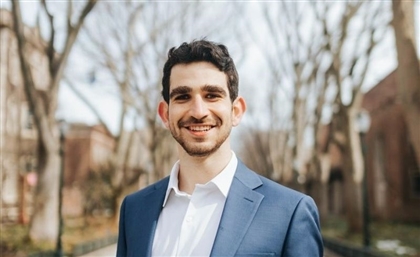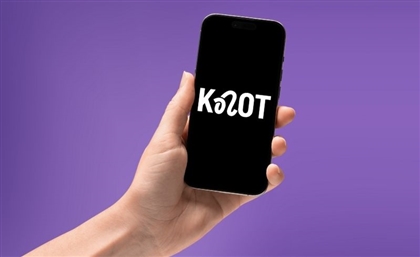Egypt's Bitcoin Pioneer Raised $8 million for a Startup that Could Put Swiss Banks In Jeopardy
We speak to Rami Khalil, the Alexandrian blockchain geek who started Bitcoin Egypt in 2017 and is now making waves with his Zurich-based startup, Liquidity Networks.
One summer ago, an Egyptian bank called Omar Abdel-Rassoul to inform him that they will be closing his company’s account and that he will need to empty out the remaining funds. Abdel Rassoul called his partner in Switzerland right away. “I was in Zurich at the time, just done with my exams and waiting for a US Visa to go do an internship at Facebook in California,” Rami Khalil tells Startup Scene.
Khalil' startup, Bitcoin Egypt, was born out of the research he was doing for his master’s degree in information security, which was focused on a topic inside bitcoin called payment channels. “I had created a publication called 'Revive' that enables a network from the payment channels to correct itself in a particular way. From here, I started to develop an interest in bitcoin,” he says, as he recalls the inception of company he created with Abdel-Rassoulin July 2017, called Bitcoin Egypt. “We were totally ready to start with the cryptocurrency exchange, a template platform that had already existed in several countries at that time.”
Both partners found themselves in mayhem; there was nothing in the law that prohibited their company’s existence, but there was nothing that supported it either. Later, the Central Bank of Egypt (CBE) sent a strong warning against cryptocurrency transactions, but the entrepreneurs weren’t affected, as they weren’t held accountable for anything illegal.
“I was annoyed and explored how to sue the bank, but after digging through the business relationship agreement, I found that they reserve the right to terminate any account at any time without specifying a reason, so there was nothing to be done to that end,” Khalil says. Then they explored their chances for opening a bank account abroad, but found that the transfers to and from it would face some severe limitations, and could still be blocked by CBE.

“We were totally ready to start with the cryptocurrency exchange, a template platform that had already existed in several countries at that time.”
As of February 2018, the Bitcoin blockchain could handle up to seven transactions per second. But, of course, this wouldn't be considered viable in comparison with credit cards like Visa. "Blockchain is still not engineered in a way to be used by masses; if I process things centrally on one device, it will work so much faster than processing the same thing several times on several devices. So I have to balance the security that I want from decentralisation," he says. Enter sharding; a concept that’s widely used in databases. A shard is a horizontal portion of a database, with each shard stored in a separate server instance; spreading the load and in turn making the database more efficient. Sharding is one method to solve blockchain's scalability problem that critics often point out. "I could have an account in a certain blockchain but the devices responsible for the security of this account are mutually exclusive from other devices responsible for different accounts in the same node. So that also scales up the usage," Khalil explains further.
Another flaw of blockchain is that you can't have a service level agreement with blockchain as an entity, so you won't have a guarantee of an amount of transactions per day. "So that is a service that we provide, dedicating machines and resources to serve 1,000 transactions per day," he explains, adding that the company also provides secondary solutions and off-chain services for mass adoption. Liquidity Network runs a protocol in parallel with that of blockchain, also allowing the funds that you’re dealing with inside the network; just like blockchain, no one except you has the authority to move it, but that would remove the transaction costs, the slowness. It basically makes cryptocurrencies commercially viable and spendable. "We are a licensed financial intermediary, even though we aren't required to be licensed," he says.
We sometimes face problems from some banks, who consider us as direct competitors to their entire institutional philosophy.
In Switzerland, Liquidity Network is managed by a diversity of entrepreneurs from different nationalities; Egyptians, French, Swiss, and Germans. Khalil's bureaucratic trip in Switzerland was one of a kind, considering it's the go-to place for securing massive funds - especially for infamous politicians. "We sometimes face problems from some banks, who consider us as direct competitors to their entire institutional philosophy," says Khalil. "Once they know we're a blockchain company or project they refuse to open us bank accounts."
They have approached several authorities in Europe to see the regulations they’re supposed to take care of, and were told that running a blockchain node doesn't require regulations. Other authorities told them that Liquidity Network will be treated as a financial intermediary, so at least the identities of the users should be disclosed to the authorities to trace the money coming in and out.

Liquidity Network is managed by a diversity of nationalities; Egyptians, French, Swiss, and Germans.
In March 2018, they scored $8 millions in an auction from six investors, four of whom are institutions. A bulk of this amount was spent on the marketing of the project as well as legal matters to ensure they're going by the book. "We want to develop our team without inflating it too much," he says. "Something that I've seen in Facebook's engineering hierarchy is huge but they're not very effective. But Facebook is trying to do thousands of things at the same time - we want to do one or two things very well, so we would be well-coordinated," he says, explaining that they are directing their funds to recruiting and hiring.
Liquidity Network is advertising their new investment round starting Thursday 14th, looking for a minimum of $27 million. With that huge amount of fund, they aim to develop and expand their business in terms of software, clientele, merchants, and an entire department to develop the API of the company.
We've made interviews with a few blockchain entrepreneurs in Egypt, but they have all agreed that it would take an estimate of 10 years to get the world started with blockchain as the default system. Khalil finds that ten years is an unambitious estimate, because the pace of development is high. "If we rolled out a protocol today, we can find another protocol that would make the one we produced obsolete only a few days after its birth. Because nothing is stopping the pace of development, anyone who's interested could contribute, which is not the case with just any new technology." He thinks out loud that maybe people put this estimate comparing blockchain with the internet, for example, considering it would go through the same cycle as any new technology: from being used by the military, to commercialisation. "But in blockchain, it's a totally different structure and cycle," he elaborates.

"The problem of ICO scams is a societal problem. Once blockchain is regularly used this problem will gradually zone out."
Khalil foresees the eruption of World War III as the birth of blockchain, as it would trigger problems that would leave no option for moving forward than adopting it as the default system for managing a destroyed world. "In World War III, people will realise blockchain is the Switzerland of funds," he says, rather apocalyptic.
In World War III, people will realise blockchain is the Switzerland of funds.
It is safe to say that blockchain is an effective tool for a New World Order, outsmarting both capitalism and communism in terms of justice. "If we're talking about a capitalism, in a company for example, all the profits that are entering this company don't change the employees' bonuses, unless there's a particular bonus structure that would favour board members over regular employees," he explains. "That isn't fair. The money is directed to an unjust way," he says, explaining that blockchain would only work to replace this unjust system if there's a structural system mandating that employees coordinate in some coalition where each member takes his share of the funds according to their contribution - without trusting a particular entity to manage that system and make sure that everyone takes his or her right.
"This is a good hybrid, because communism isn't as equality-oriented as it claims to be in terms of justice," Khalil says. "One might work harder and earn the equal amount of wage of someone who works less. But this New World Order blockchain supports would guarantee a fair wage according to the contribution, without being on the account of one's share of the funds."
Photography by @MO4Network's #MO4Productions.
Photographer: Eslam Mohamed
Trending This Month
-
Jan 19, 2026




















